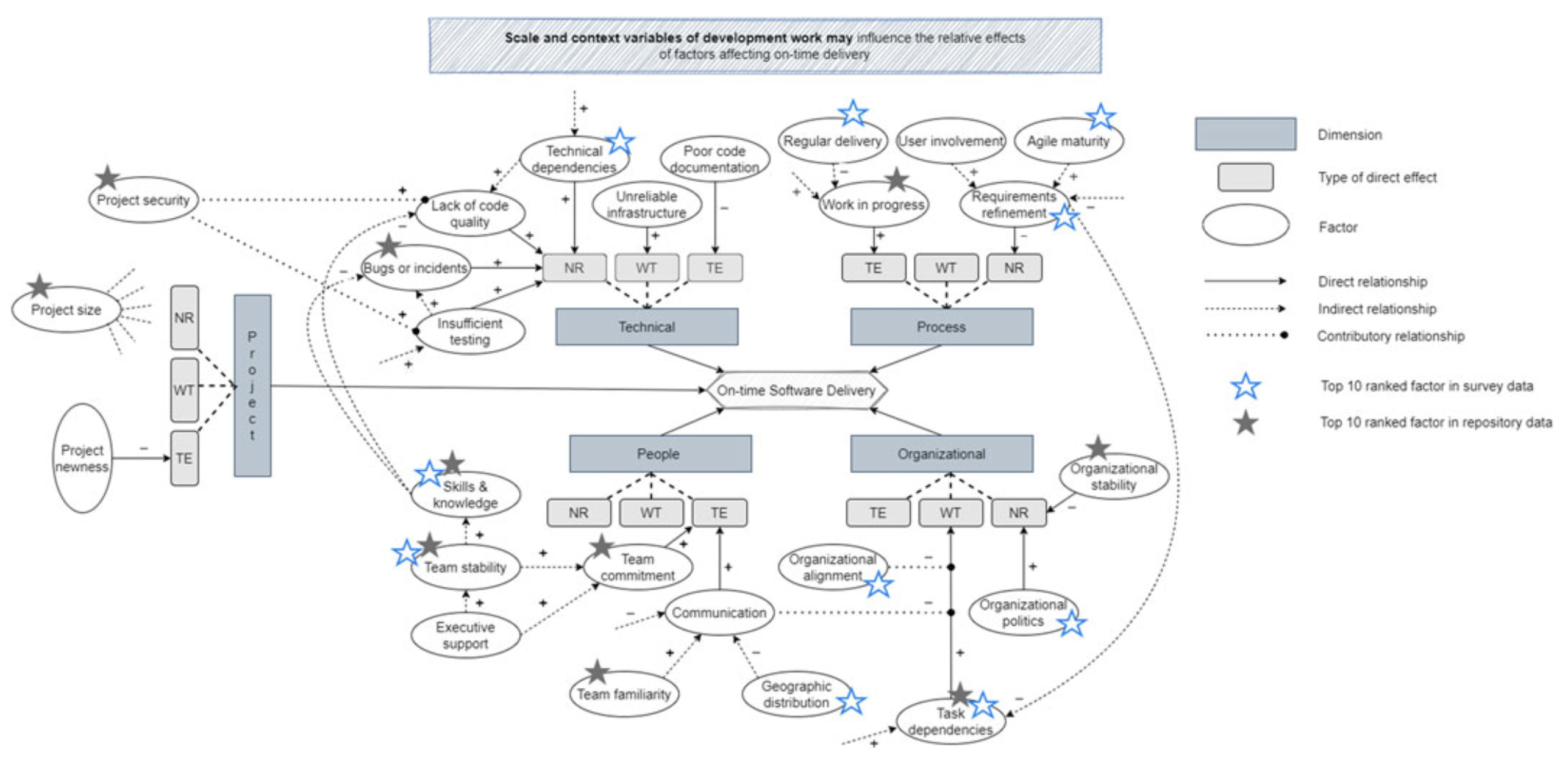On-Time Delivery in Large-Scale Agile
Reviewed by Greg Wilson / 2023-03-06
Keywords: Agile Development
Does agile work? Twenty-two years after the publication of the Agile Manifesto we still don't have a trustworthy answer: too many different things are called "agile", "work" is poorly defined, and most of its advocates and detractors cite anecdotes rather than collecting evidence.
This paper tackles all three issues at once. First, it examines the particular flavor of agile development used in one large organization that breaks development down into themes, epics, features, stories, and tasks and then uses a by-now-conventional continuous delivery pipeline. Second, it asks whether this family of development practices affects timely delivery of promised value, and third, the authors collected both qualitative and quantitative data and used it both to answer their questions and to build a conceptual model to underpin further work. Their conclusion is not a simple "yes" or "no"—it couldn't be—but rather a deeper, validated understanding of the forces at play and the interactions between them.

Elvan Kula, Eric Greuter, Arie van Deursen, and Georgios Gousios. Factors affecting on-time delivery in large-scale agile software development. IEEE Transactions on Software Engineering, 48(9), Sep 2022. URL: doi:10.1109/tse.2021.3101192.
Late delivery of software projects and cost overruns have been common problems in the software industry for decades. Both problems are manifestations of deficiencies in effort estimation during project planning. With software projects being complex socio-technical systems, a large pool of factors can affect effort estimation and on-time delivery. To identify the most relevant factors and their interactions affecting schedule deviations in large-scale agile software development, we conducted a mixed-methods case study at ING: two rounds of surveys revealed a multitude of organizational, people, process, project and technical factors which were then quantified and statistically modeled using software repository data from 185 teams. We find that factors such as requirements refinement, task dependencies, organizational alignment and organizational politics are perceived to have the greatest impact on on-time delivery, whereas proxy measures such as project size, number of dependencies, historical delivery performance and team familiarity can help explain a large degree of schedule deviations. We also discover hierarchical interactions among factors: organizational factors are perceived to interact with people factors, which in turn impact technical factors. We compose our findings in the form of a conceptual framework representing influential factors and their relationships to on-time delivery. Our results can help practitioners identify and manage delay risks in agile settings, can inform the design of automated tools to predict schedule overruns and can contribute towards the development of a relational theory of software project management.